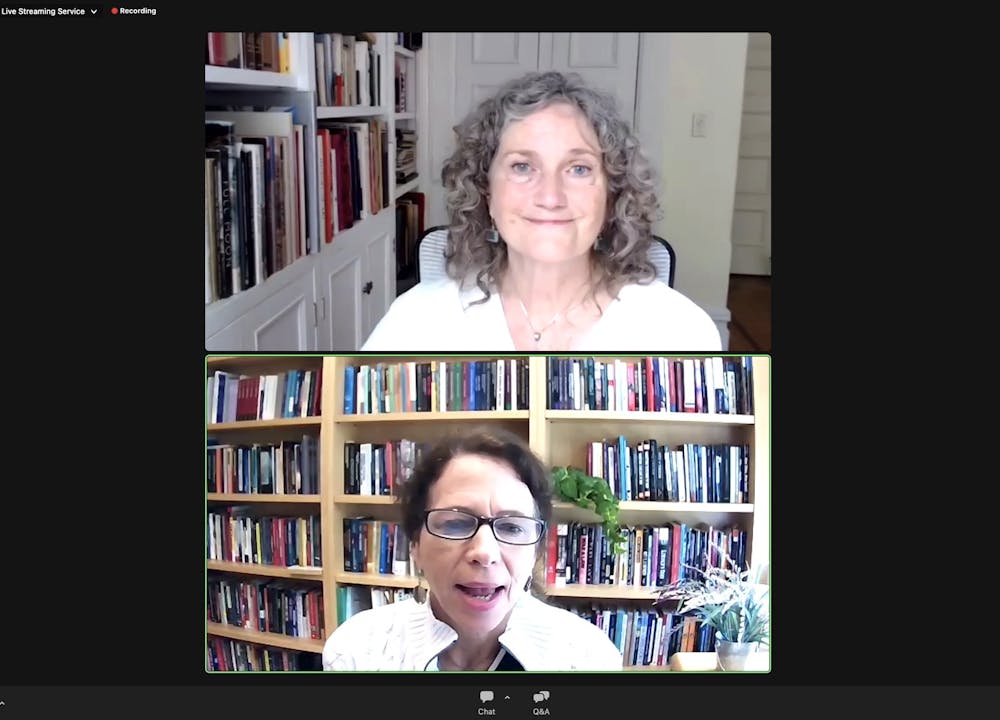In a virtual event entitled “Legacy of the ‘Dark Side’: The Costs of Unlawful U.S. Detentions and Interrogations Post-9/11,” Political Science Lecturer Nina Tannenwald moderated a discussion with Letta Tayler, associate director in the Crisis and Conflict Division of Human Rights Watch. Tayler discussed the implications of indefinite detention at Guantanamo Bay and expanded on U.S. policies regarding transfers, detention and torture in the more than two decades following 9/11.
Tayler’s presentation drew from a research paper she co-authored with former HRW Advocacy Officer Elisa Epstein as part of the Watson Institute for International and Public Affairs’ Costs of War Project, which advances research on the “many hidden or unacknowledged costs” of the United States’ military response to the Sept. 11 terrorist attacks.
Her talk discussed the 36 men who remain indefinitely detained at Guantanamo Bay since the United States’ transfer of 800 people to Guantanamo between 2002 and 2008. Of the remaining detainees, 24 have never been charged with any crime and Tayler said 12 have not received fair trials.
“That’s because the military commission system that Bush created to prosecute suspects at Guantanamo is deliberately, fundamentally flawed,” Tayler said. “It gives a clear advantage to the prosecution, and it’s ensnarled … in legal arguments over CIA torture, destruction of evidence and interference in trial proceedings.”
She added that five men charged with plotting the Sept. 11, 2001 terrorist attacks are still in pretrial hearings that have been “indefinitely suspended,” a situation that not only violates the defendants’ rights but also deprives “the survivors and families of the justice that they have waited so long to be served.”
As part of the question and answer session following the presentation, Tannenwald read a question from the audience asking how Guantanamo detainees integrate back into society following release. Tayler responded that some have turned to terrorist organizations or joined groups after not being involved with terrorism to begin with, although she acknowledged that some studies find these recidivism rates to be less than those of violent offenders in the U.S. justice system.
She described her study of Yemeni detainees released from Guantanamo without any social safety network, who were unable to get jobs or afford dowries for marriage — a matter of great cultural significance in Yemen.
“It’s really important, as a counterterrorism measure, to look at what happens to people when they leave Guantanamo,” she said. “Are communities prepared to receive people who have been away all these years? Are family members prepared? What is the safety net going to be? Because without that safety net, returnees … could be more susceptible to the terrorist siren call.”
Tannenwald also posed her own questions to Tayler. One of them concerned whether the United States’ current calls for Russia to be held accountable for its war crimes in Ukraine yields an opportunity “to shine a light … back to the United States and what it has done in the war on terror.”
Tayler emphatically agreed and said the U.S. government’s condemnation of other global atrocities has been undermined by its own weakened moral authority due to its prison at Guantanamo. She cited how Chinese authorities found the United States’ condemnation of China’s internment and human rights abuses of Uyghur Muslims in Xinjiang hypocritical.





